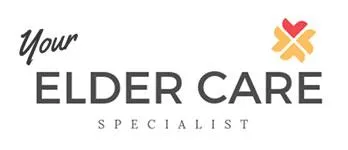
Legal and Ethical Considerations in Elder Care
Caring for an elderly loved one involves navigating a complex landscape of legal and ethical considerations. From understanding the legal tools that can help protect their interests to grappling with ethical dilemmas around consent and autonomy, families must be well-informed to ensure their loved ones' needs and wishes are respected. In this blog, we’ll explore some of the key legal and ethical issues in elder care, including power of attorney, guardianship, ethical challenges, and the importance of advanced directives and living wills.
Understanding Power of Attorney and Guardianship
As seniors age, they may reach a point where they can no longer manage their affairs due to cognitive decline, physical disability, or other factors. In these situations, establishing a power of attorney or guardianship can provide a legal framework to protect their interests.
Power of Attorney (POA) is a legal document that grants a trusted individual, known as the agent, the authority to make decisions on behalf of the elderly person, referred to as the principal. This can include managing financial matters, healthcare decisions, or both, depending on the type of POA established. There are generally two types of POAs: durable and non-durable. A durable POA remains in effect even if the principal becomes incapacitated, whereas a non-durable POA typically ends when the principal can no longer make decisions.
Guardianship, on the other hand, is a court-appointed role in which an individual, known as the guardian, is given the responsibility to make personal and/or financial decisions for someone who is deemed unable to do so. Unlike a power of attorney, guardianship is often more restrictive and involves more oversight from the court, as it can limit the individual’s personal freedoms. The decision to appoint a guardian is not taken lightly, and it often requires evidence that the individual cannot manage their own affairs.
Both power of attorney and guardianship are crucial tools in elder care, but they should be approached with careful consideration, understanding the responsibilities and the impact on the elderly person’s autonomy.

Ethical Issues in Elder Care - Consent and Autonomy
Ethical issues often arise in elder care, especially when balancing the need for care with the individual's right to make their own decisions. Consent and autonomy are fundamental ethical principles that must be respected to ensure the dignity and rights of elderly individuals.
Consent is a critical aspect of ethical care. Seniors must be given the opportunity to consent to or refuse treatments, interventions, and changes in their living arrangements. This can be challenging when cognitive decline is involved, but it's essential to involve the elderly person in discussions about their care as much as possible. Clear communication and respect for their wishes are vital in maintaining their autonomy.
Autonomy refers to the right of individuals to make their own choices. In elder care, this might involve decisions about where they live, what medical treatments they receive, and how they spend their time. Ethical dilemmas often arise when the desires of the elderly person conflict with what their family or caregivers believe is best for their safety and well-being. It’s important to strike a balance that protects the individual while honoring their autonomy.
Ethical caregiving also requires understanding the principles of beneficence (doing good) and non-maleficence (avoiding harm). Caregivers and families should aim to provide care that benefits the elderly person while minimizing risks and respecting their personal values and preferences.

Preparing Advanced Directives and Living Wills
Planning for future medical care is an essential part of elder care, and advanced directives and living wills are critical tools in this process. These legal documents ensure that an elderly person's wishes regarding medical treatment are known and respected, even if they become unable to communicate them.
An advanced directive is a general term for legal documents that outline a person’s wishes for medical care if they become incapacitated. This can include instructions about specific treatments they do or do not want, as well as appointing a healthcare proxy or medical power of attorney to make decisions on their behalf.
A living will is a type of advanced directive that specifically addresses end-of-life care. It provides instructions on what types of life-sustaining treatments an individual wants or does not want, such as mechanical ventilation, resuscitation, or feeding tubes. This document is crucial in ensuring that an elderly person's end-of-life wishes are honored, reducing the burden on family members to make difficult decisions during emotionally charged times.
Preparing these documents in advance, while the elderly person is still of sound mind, is essential. It ensures that their preferences are clearly documented and legally recognized, providing peace of mind to both the individual and their family.

Conclusion
Navigating the legal and ethical aspects of elder care can be challenging, but it is crucial for ensuring the well-being and dignity of elderly loved ones. Understanding the roles of power of attorney and guardianship, addressing ethical issues around consent and autonomy, and preparing advanced directives and living wills are all important steps in this process. By being informed and proactive, families can make decisions that honor their loved ones’ wishes and provide the best possible care.
At Your Elder Care Specialist, we are here to help families in the Greater Sacramento area, including Sacramento County, El Dorado County, Placer County, Nevada County, Amador County, and Yolo County. Our team of experts is ready to guide you through these complex decisions with compassion and expertise. Contact us today to learn more about how we can support you in navigating the legal and ethical aspects of elder care.


